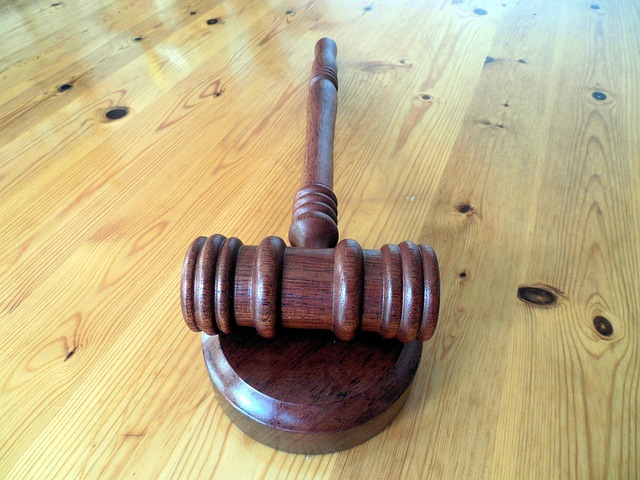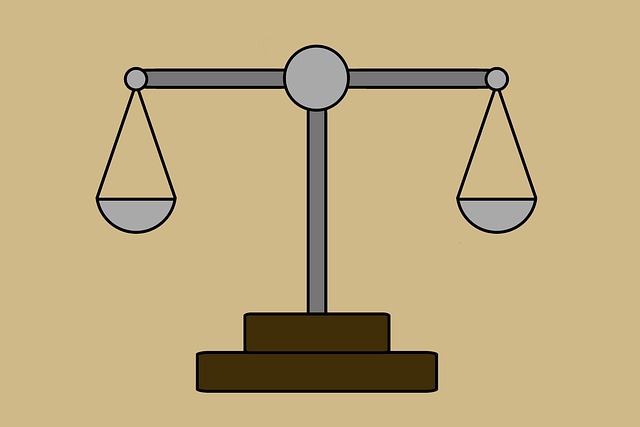Antitrust laws protect fair competition, with plaintiffs/prosecutors facing a high legal standard (Legal Standards for Burden of Proof) to demonstrate beyond doubt that companies engage in anti-competitive behaviors like price-fixing or market dominance abuse. This involves presenting strong evidence, analyzing market data, and employing expert witnesses to secure favorable outcomes in complex cases.
“Antitrust violation cases play a pivotal role in maintaining fair market competition, ensuring consumer protection, and fostering economic growth. This article delves into the intricate world of antitrust laws and their objectives, providing a comprehensive guide on defining unfair competition and market dominance under legal frameworks. We explore crucial aspects such as evidence requirements, strategies for proving violations, and common challenges faced by plaintiffs. Understanding these legal standards for burden of proof is essential to navigate complex antitrust cases effectively.”
- Understanding Antitrust Laws and Their Objectives
- Defining Unfair Competition and Market Dominance
- Legal Framework: Evidence and Proof Requirements
- Strategies for Proving Antitrust Violations
- Common Challenges and Defense Mechanisms
Understanding Antitrust Laws and Their Objectives

Antitrust laws are a set of regulations designed to promote fair competition in the marketplace. These laws aim to prevent businesses from engaging in anti-competitive practices that could harm consumers and stifle economic growth. Understanding the legal standards for burden of proof is crucial when navigating antitrust violation cases. In such cases, prosecutors or plaintiffs must demonstrate beyond a reasonable doubt that a company has violated these laws.
This involves presenting compelling evidence that shows an illegal agreement or conspiracy among competitors, abuse of dominant market position, or anti-competitive effects in the form of higher prices, reduced quality, and limited choices for consumers. The focus is not merely on business conduct but also on its impact on the competitive landscape. Whether through jury trials or other legal proceedings, both corporate and individual clients face significant challenges when accused of white collar and economic crimes related to antitrust violations.
Defining Unfair Competition and Market Dominance

In the realm of antitrust law, understanding unfair competition is paramount. This concept goes beyond mere unfriendly behavior between businesses; it involves practices that restrict trade and harm consumers. Unfair competition can take various forms, from price-fixing schemes to exclusive dealing agreements, all of which are scrutinized under strict legal standards. The key lies in defining market dominance, where a company’s significant market share enables it to influence pricing and limit competitors’ entry. This is often the crux of high-stakes cases, as achieving extraordinary results requires navigating complex legal landscapes.
The Legal Standards for Burden of Proof play a pivotal role here. In antitrust violations, plaintiffs must typically meet a higher burden of proof, requiring them to present compelling evidence that demonstrates the existence of an illegal agreement or behavior. This standard ensures fairness and protects businesses from baseless accusations. For respective business facing allegations of unfair competition or market dominance issues, understanding these legal standards is essential for building robust defenses and achieving positive outcomes in court.
Legal Framework: Evidence and Proof Requirements

In antitrust violation cases, the legal framework dictates a stringent standard for establishing guilt. The burden of proof lies with the plaintiff or the regulatory authority, who must present compelling evidence to demonstrate that an anti-competitive practice has occurred. This involves showing that there was an actual conspiracy or agreement among businesses to fix prices, restrict output, or divide markets, often through direct or circumstantial evidence.
The legal standards for the burden of proof require a thorough examination of all stages of the investigative and enforcement process. Relevant business documents, communications, and market data are crucial pieces of evidence. Avoiding indictment hinges on presenting clear and convincing proof that meets these legal standards, ensuring a fair and just outcome in antitrust litigation.
Strategies for Proving Antitrust Violations

Proving antitrust violations requires a deep understanding of complex legal standards and evidence collection strategies. The Legal Standards for Burden of Proof dictate that the plaintiff or investigating agency must demonstrate beyond a reasonable doubt that an anti-competitive practice has occurred. This involves presenting concrete facts and substantial evidence to establish the existence of agreements, market power, and anti-competitive effects. One effective strategy is to gather documentary proof such as contracts, communication records, and financial documents that illustrate collusion or price-fixing schemes.
Additionally, using expert witnesses who specialize in antitrust law and economics can strengthen a case. These experts can analyze market trends, evaluate pricing structures, and provide insights into the competitive landscape, helping to avoid indictment for lack of conclusive evidence. By combining direct and circumstantial evidence, along with robust legal arguments, plaintiffs or prosecutors can navigate complex defenses and work towards winning challenging defense verdicts in antitrust violation cases. General criminal defense strategies may also apply, focusing on the specifics of each case while adhering to the stringent proof requirements.
Common Challenges and Defense Mechanisms

Antitrust violation cases present a complex landscape for both prosecutors and corporate and individual clients alike. One of the common challenges is navigating the intricate web of legal standards for burden of proof, which can significantly impact the outcome of such cases. Establishing guilt beyond a reasonable doubt is paramount throughout all stages of the investigative and enforcement process. This requires meticulous gathering and analysis of evidence to ensure a robust case that can withstand scrutiny from seasoned attorneys representing the accused.
Defending against antitrust charges often involves intricate legal strategies tailored to the specific allegations. Common defense mechanisms include challenging the interpretation of market definitions, disputing the existence of harmful effects on competition, and asserting that the conduct in question was merely a response to competitive pressures rather than an anticompetitive conspiracy. The complexity of these cases demands a deep understanding of economic principles and careful consideration of both direct and circumstantial evidence presented across the country.
In conclusion, navigating antitrust violation cases requires a deep understanding of both the legal standards for burden of proof and the evolving landscape of market dominance. By defining unfair competition and employing effective strategies to prove violations, plaintiffs can ensure that businesses adhere to fair competition principles. Despite challenges and defense mechanisms, the pursuit of justice in these cases remains crucial for maintaining a healthy and competitive marketplace.






